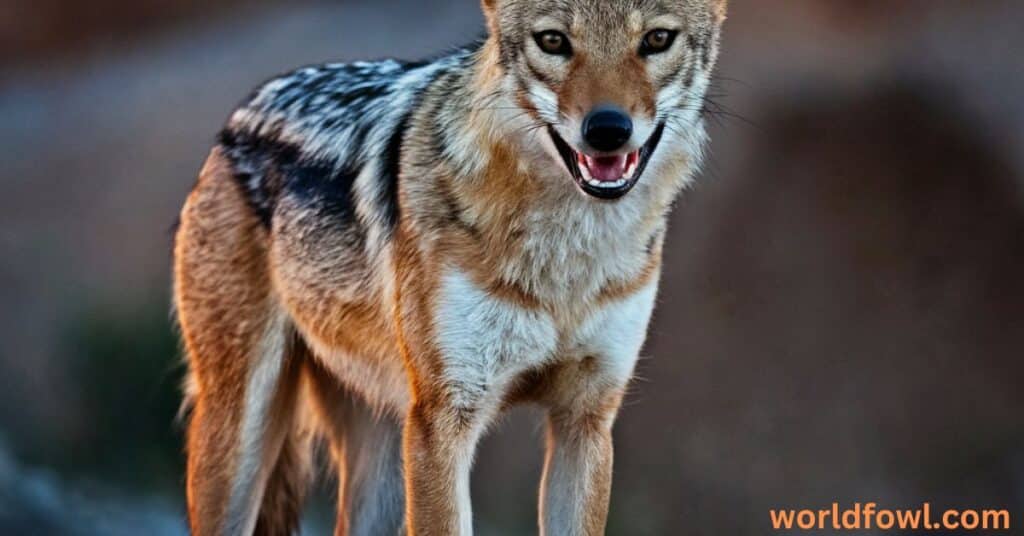Jackals have often been portrayed as cunning, dangerous creatures lurking in the shadows, but do jackals attack humans? In this article, we’ll dive deep into the true nature of these animals, exploring their behavior, habitats, and interactions with humans. We’ll analyze if jackals are a real threat, what triggers aggression, and how humans can peacefully coexist with them.
Understanding Jackals
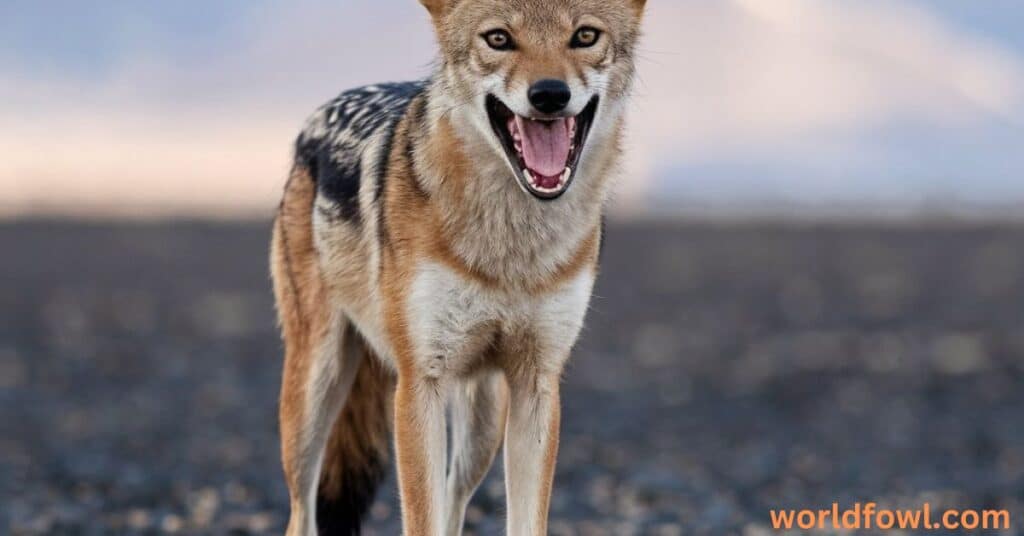
Jackals belong to the Canidae family, a group of animals that includes wolves, foxes, domestic dogs, and coyotes. The family is known for its members’ intelligence, adaptability, and hunting instincts. However, jackals differ in behavior and diet compared to larger predators like wolves or big cats.
There are three main jackal species, each with distinct characteristics and behaviors:
- Golden Jackal: The most widespread species, found across Africa, the Middle East, and parts of Asia. It is known for its adaptable nature and diverse diet.
- Black-Backed Jackal: Predominantly found in Southern Africa, this species is notable for the black fur on its back, which contrasts with its golden-yellow coat. This jackal is more territorial and aggressive than others.
- Side-Striped Jackal: The least common of the three, it is found in central and southern Africa and prefers more forested areas compared to the more open environments favored by other jackal species.
Here in table form :
| Category | Description |
|---|---|
| Scientific Classification | Family: Canidae (includes dogs, wolves, and foxes) |
| Main Species | – Golden Jackal – Black-Backed Jackal – Side-Striped Jackal |
| Size | Medium-sized carnivores, weighing between 15 to 30 pounds. |
| Physical Characteristics | – Golden Jackal: Golden or yellowish coat – Black-Backed Jackal: Black back with golden-yellow fur – Side-Striped Jackal: Pale, stripy sides |
| Habitat | Found in diverse habitats, including grasslands, forests, savannas, and urban areas. Common in Africa, the Middle East, and parts of Asia. |
| Diet | Omnivorous: Small mammals, birds, fruits, insects, and sometimes carrion (scavenger). |
| Behavior | – Nocturnal animals: Active mainly during the night. – Scavengers: Often feed on carcasses left by larger predators. |
| Social Structure | Can live solitarily or in small family groups depending on species and environmental factors. |
| Role in the Ecosystem | Important as scavengers, helping to clean up carcasses and maintain ecosystem balance. |
| Territorial Behavior | Highly territorial, especially during breeding seasons. Will defend their territory from other jackals and larger predators. |
| Interaction with Humans | Generally shy, jackals avoid humans, but they may venture into human settlements when food is scarce, leading to occasional conflicts. |
| Common Diseases | Rabies (can cause aggression), toxoplasmosis, various parasites such as ticks and fleas. |
| Reproduction | Typically give birth to 2-5 pups. The breeding season is usually during the cooler months, with pups being raised in dens. |
| Predator-Prey Dynamics | Jackals typically prey on smaller animals or scavenge. They are opportunistic feeders and may become more aggressive when food sources are scarce. |
See Also : Do Yak Attack Humans? A Closer Look!
Habitat and Geographical Distribution
Jackals are found across a wide range of geographical locations, from the dry savannas of Africa to the arid deserts of Asia. Their habitat preferences vary slightly depending on the species, but they are all highly adaptable animals. As the human population expands, jackals are increasingly found near human settlements, where food sources are more abundant.
Golden Jackal:
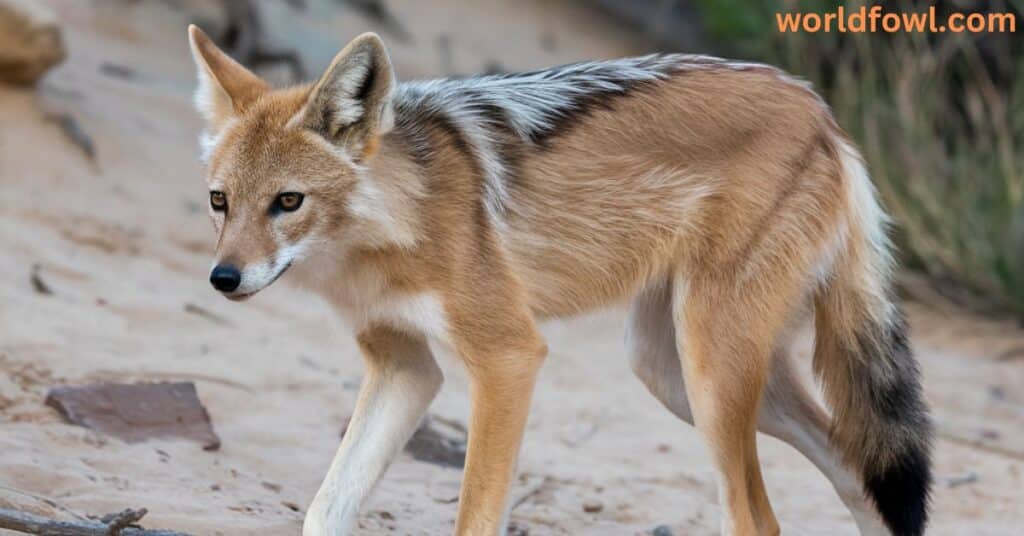
- This species is the most geographically widespread, found in parts of Africa, the Middle East, and Southeast Asia. It thrives in a range of environments, from arid deserts to wetlands and even urban areas.
Black-Backed Jackal:
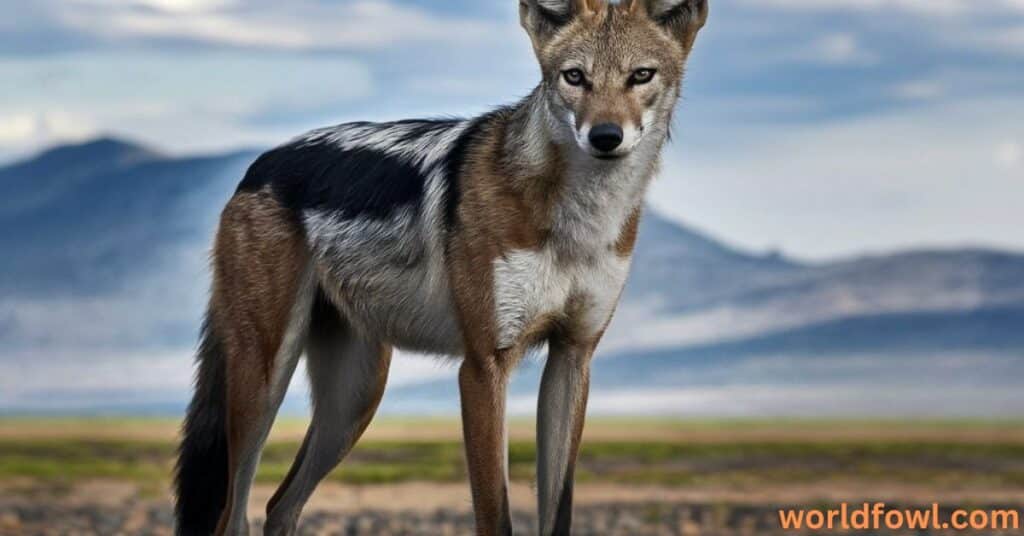
- Found in the southern parts of Africa, particularly in the savannas, grasslands, and coastal plains of the region. Black-backed jackals are well-adapted to the harsh conditions of the southern African landscapes.
Side-Striped Jackal:
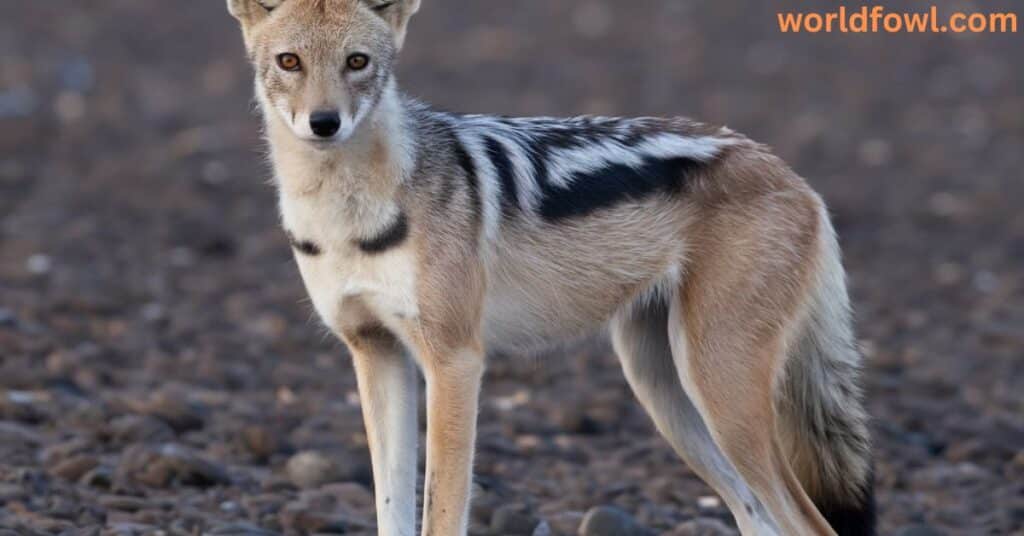
- Prefers more forested habitats, often found in central and southern Africa. This species is more elusive and less likely to interact with humans compared to the other two species.
Jackals are omnivorous animals, meaning their diet consists of both meat and plant matter. They often feed on small mammals, birds, fruits, and insects. They are nocturnal animals, typically hunting at night, when they can scavenge food without attracting the attention of larger predators. Jackals are also skilled hunters and can take down prey when necessary, but they will always prioritize scavenging if the opportunity arises.
However, urbanization has caused these animals to adapt to human settlements in search of food. They are often drawn to human waste and leftover food, which can lead to conflicts with people. Jackals are opportunistic, and when their natural food sources become scarce due to changes in the environment, they may turn to human settlements for food.
See Also : 13 Spiritual Meanings of Seeing Two Grey Doves & Symbolism
Do Jackals Attack Humans?
The Reality of Jackal Attacks
Do jackals attack humans? The answer is complicated. Jackals, like many wild animals, are naturally shy and tend to avoid human contact when possible. However, there have been occasional reports of jackals attacking humans, and these incidents often stir up fear and speculation.
The truth is, jackals are not natural predators of humans. They primarily feed on small animals, birds, and insects. Jackal attacks on humans are extremely rare, and when they do occur, it is usually because the animal feels threatened or is rabid. Most attacks are a result of the jackal feeling cornered or provoked.
It is important to understand the difference between an animal that attacks out of aggression and one that is simply defending itself. In many cases, jackals that do attack humans are simply acting out of fear, not because they view humans as prey.
Incidence of Attacks
While jackal attacks are uncommon, they can occur in certain situations. Some of the key factors that increase the likelihood of an attack include:
- Rabies: Rabid jackals are more likely to exhibit aggressive behavior and may attack both animals and humans. Rabies affects the central nervous system and can cause animals to behave erratically. Rabid jackal attacks are more dangerous because they can spread the disease to humans and other animals.
- Food Scarcity: In times of food scarcity, jackals may become more desperate and aggressive. If they are unable to find natural prey, they may scavenge from human settlements. In some rare cases, if they are not able to find food, they may attack a human or a pet in search of sustenance.
- Territorial Behavior: Jackals are territorial animals, and if they feel their territory is being invaded, they may become aggressive. This is more common when jackals are breeding and protecting their young.
- Human Provocation: Jackals, like most animals, may attack in self-defense if they feel threatened. People who attempt to approach or harm a jackal may be at risk of being attacked.
While attacks are uncommon, they are not impossible. However, it’s important to note that these events are rare and usually involve unusual circumstances.
Regions Where Jackal Attacks Are More Likely
While jackal attacks on humans can happen in many places, some regions are more prone to these incidents than others. Areas where human-jackal conflict is more common include:
- India: In parts of India, where human settlements are expanding into previously wild areas, there have been occasional reports of jackals attacking people. This is often linked to a lack of food and the encroachment of human populations into jackals’ natural territories.
- Africa: In areas where jackals coexist with large carnivores like lions and hyenas, there may be competition for food. In these regions, jackals may be more likely to scavenge from human settlements, increasing the chance of human-jackal conflict.
- Middle East: In regions where human populations are growing and wild habitats are being destroyed, jackals are increasingly venturing into urban areas in search of food, which can lead to more frequent encounters with humans.
Why Do Jackals Attack?
As mentioned earlier, jackals are not naturally inclined to attack humans. So, what causes these rare attacks?
- Rabies: The primary cause of aggressive jackal behavior is rabies. When infected with rabies, jackals lose their fear of humans and may behave aggressively. Rabid animals are known to attack humans, animals, and even other jackals, making rabies one of the main causes of aggression in these animals.
- Food Scarcity: Jackals are scavengers, and when food is scarce, they may approach human settlements in search of food. In times of food scarcity, jackals may become more desperate and aggressive if they perceive humans as a source of food.
- Territorial Defense: Jackals are territorial creatures, and they will defend their territory if they feel threatened. In certain situations, such as during the breeding season, jackals may become more aggressive in protecting their young.
- Human Provocation: Like most animals, jackals will defend themselves if they feel threatened. If a human gets too close or attempts to harm a jackal, it may respond by attacking in self-defense.
See Also : Spiritual Meanings Of A Dog Running Away
How Do Jackal Attacks Compare to Other Wild Animals?
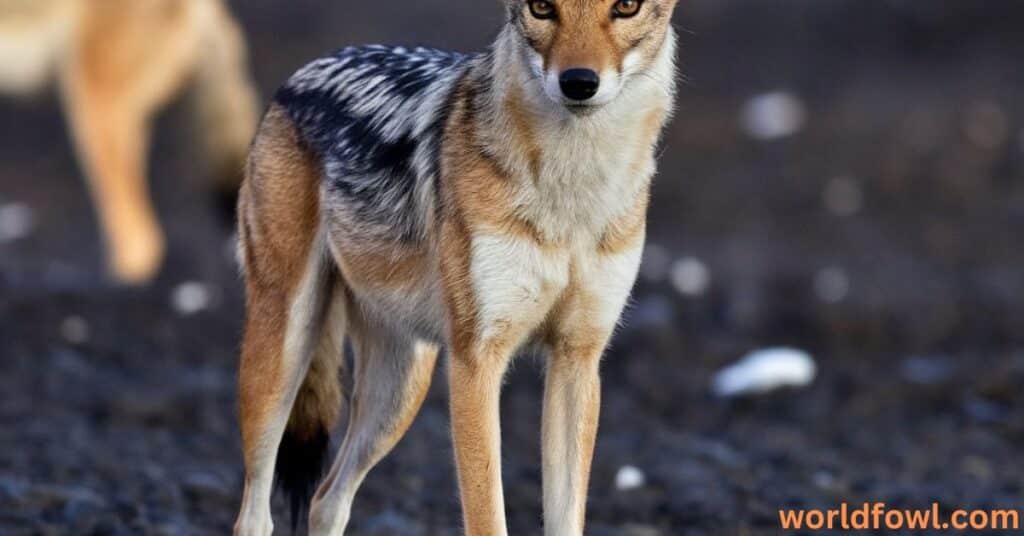
When comparing jackal attacks to attacks from other wild animals, it becomes clear that jackals are not the biggest threat to humans. While their bites can cause injury, they are rarely life-threatening.
Jackals vs. Wolves
Wolves are much larger and stronger than jackals. They are capable of taking down larger prey, and although attacks on humans are extremely rare, they are far more dangerous than jackals. Wolves are known to hunt in packs and have a greater ability to overpower larger animals, including humans.
Jackals vs. Foxes
Foxes, like jackals, belong to the Canidae family, but they are smaller and less likely to attack humans. Fox attacks on humans are incredibly rare and usually occur when the animal is rabid or extremely sick. Foxes are generally timid and will avoid human interaction whenever possible.
Jackals vs. Big Cats
Big cats such as lions, tigers, and leopards are far more dangerous to humans than jackals. These animals are capable of killing humans if they feel threatened, and they actively hunt large prey. In contrast, jackals are primarily scavengers and are far less likely to view humans as potential prey.
Are Jackal Attacks Dangerous?
While jackal attacks are rare, they can still pose a danger in certain circumstances. Most attacks result in minor injuries such as bites and scratches, but they can become more serious if the jackal is rabid or if the wound becomes infected.
Severity of Attacks
Rabid jackals are the most dangerous, as they can transmit the disease to humans and other animals. Rabies is a viral disease that affects the brain and can lead to death if not treated promptly. The severity of an attack depends on several factors:
- The health of the jackal: A healthy jackal will be less likely to attack a human unless provoked, while a sick or rabid jackal is more likely to show aggressive behavior.
- The location of the attack: A bite or scratch from a jackal in an isolated area can lead to more severe consequences if medical help is not readily available.
- The timeliness of treatment: Rabies is a deadly disease if left untreated. Anyone bitten or scratched by a jackal should seek medical attention immediately.
Case Studies
There have been reports of jackal attacks on humans, but these cases are rare and often linked to rabies. In 2007, a man in India was attacked by a rabid jackal, which led to severe injuries. The man was fortunate enough to receive rabies vaccination, but the incident highlights the potential danger posed by rabid jackals.
See Also : Do Pandas Attack Humans? Cuddly Yet Deadly?
Preventing Jackal Encounters
How to Avoid Jackals
Preventing jackal attacks is relatively simple. The key is to avoid provoking or cornering these animals. Here are some tips to reduce the risk of encounters:
- Secure waste: Jackals are attracted to food scraps. Ensure that your trash is secured in containers and that you don’t leave food out overnight.
- Avoid feeding wild animals: Feeding jackals or any wild animals can make them more accustomed to human presence and increase the likelihood of conflict.
- Keep pets safe: If you live in an area where jackals are common, make sure your pets are safely contained at night. Pets can attract jackals, and a hungry jackal may see them as potential prey.
How to Respond to a Jackal Encounter
If you find yourself face-to-face with a jackal, it’s important to stay calm. Jackals are typically not aggressive toward humans unless they feel threatened. Here’s how to respond:
- Do not run: Running may trigger the jackal’s chase instinct.
- Make yourself appear larger: Stand tall and spread your arms. If possible, raise an object to make yourself look bigger.
- Back away slowly: Slowly move away from the jackal without turning your back on it.
- Defend yourself: If a jackal becomes aggressive, use any available object to defend yourself.
Conclusion: Do Jackals Attack Humans?
So, do jackals attack humans? While jackal attacks are rare, they can occur, usually due to rabies, food scarcity, or territorial behavior. These animals are more likely to avoid humans than engage with them, and attacks typically happen when the jackal feels cornered, threatened, or sick. Understanding their behavior and how to respond can help prevent conflicts and reduce the risk of an attack.
By practicing wildlife management, ensuring that human-jackal conflict is minimized, and conserving habitats, we can coexist peacefully with these remarkable animals. Jackals, while sometimes feared, play a crucial role in the ecosystem, and understanding their behavior allows us to appreciate their place in the wild without unnecessary fear.
See Also : Do Praying Mantis Attack Humans? Praying Mantis vs. Humans!
FAQs: Do Jackals Attack Humans?
Can jackals be domesticated?
Jackals are wild animals and are not suited for domestication in the same way as dogs. While they share a family with dogs (Canidae), their natural instincts and behaviors are too different to make them suitable companions for humans. Jackals are often wary of humans and are more likely to flee from interaction. Attempting to domesticate them could be dangerous, as their instincts could lead them to become aggressive if they feel threatened or cornered.
Do jackals carry diseases that can affect humans?
Yes, jackals can carry diseases that may be transmitted to humans, most notably rabies. Rabies is a viral infection that affects the brain and central nervous system, causing aggressive behavior, paralysis, and death if not treated promptly. Other diseases that jackals can transmit include toxoplasmosis and various parasites, such as ticks and fleas, which can pose a risk to both humans and domestic animals. It’s important to avoid direct contact with wild jackals, especially if they display unusual behavior, as they may be carrying infectious diseases.
3. Are jackals more dangerous in urban areas?
Urbanization has led to increased interactions between humans and wildlife, including jackals. While jackals themselves are not inherently more dangerous in urban areas, the abundance of food waste and fewer natural predators can make them more likely to venture into human settlements. Food scarcity in their natural habitats often drives jackals into cities and villages in search of food, which can occasionally result in human-jackal conflict. However, these animals are still more likely to avoid humans and only become aggressive if provoked, sick, or desperate.
How common are jackal sightings near human settlements?
Jackal sightings near human settlements have become more frequent, especially in regions where urbanization has expanded into natural habitats. Habitat encroachment and the expansion of rural communities into wild areas have led to more encounters between humans and jackals. These animals are opportunistic feeders and will scavenge in urban areas if they find food sources like garbage or pet food. In rural areas, jackals may approach homes or farms looking for food, and this can increase the chances of an encounter. Although sightings are more common, attacks on humans remain relatively rare.
What should you do if bitten by a jackal?
If you are bitten by a jackal, it’s crucial to seek immediate medical attention. A bite from a jackal can potentially expose you to rabies or other infections. Here’s what you should do if bitten:
- Clean the wound immediately with soap and water to reduce the risk of infection.
- Seek medical help as soon as possible. A doctor may administer a rabies vaccination or other treatments depending on the severity of the bite.
- Report the incident to local wildlife authorities, as they may need to capture and test the jackal for rabies.

Henry James is a seasoned blogger and a passionate storyteller on “World Fowl.” With years of experience crafting engaging content, he brings a unique blend of expertise and creativity to his writing. Henry specializes in exploring diverse topics with depth and clarity, captivating readers worldwide.

